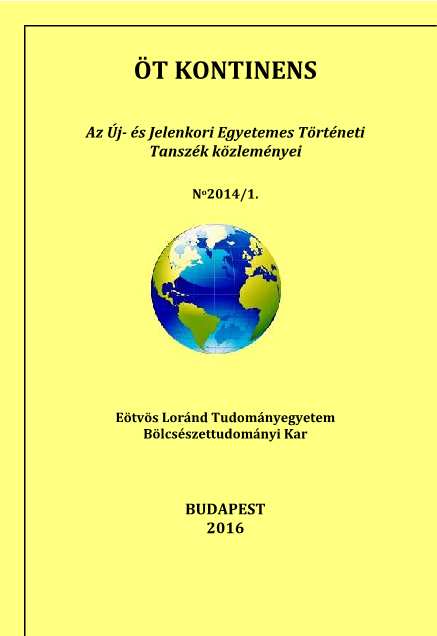U.S. Foreign Policy during the Cold War: The Failure of Containment in the case of the Vietnam War
U.S. Foreign Policy during the Cold War: The Failure of Containment in the case of the Vietnam War
Author(s): Gábor FöldessySubject(s): Post-War period (1950 - 1989)
Published by: Eötvös Loránd Tudományegyetem, Új-és Jelenkori Egyetemes Történeti Tanszék
Keywords: Cold War; containment; Vietnam War; communism, the domino theory; Lyndon B. Johnson; escalation; Richard Nixon; Henry Kissinger; guerilla warfare
Summary/Abstract: The primary goal of American foreign policy during the Cold War was to contain the spread of the Soviet Union’s communist ideology around the world. By the mid-1960s, the struggle of the two superpowers was concentrated on Vietnam. Through supporting the anti-communist South Vietnamese government, the United States made several attempts to prevent the spread of communism in Vietnam: the USA fought against the North Vietnamese communists who were backed by the Soviet Union and China. However, despite all its efforts, the United States failed in its attempt to contain the spread of communism in Vietnam. The purpose of this research paper is to examine the failure of containment policy in the case of the Vietnam War and the reasons and factors that played a major role in it.
Journal: ÖT KONTINENS
- Issue Year: 2014
- Issue No: 1
- Page Range: 179-198
- Page Count: 20
- Language: English

